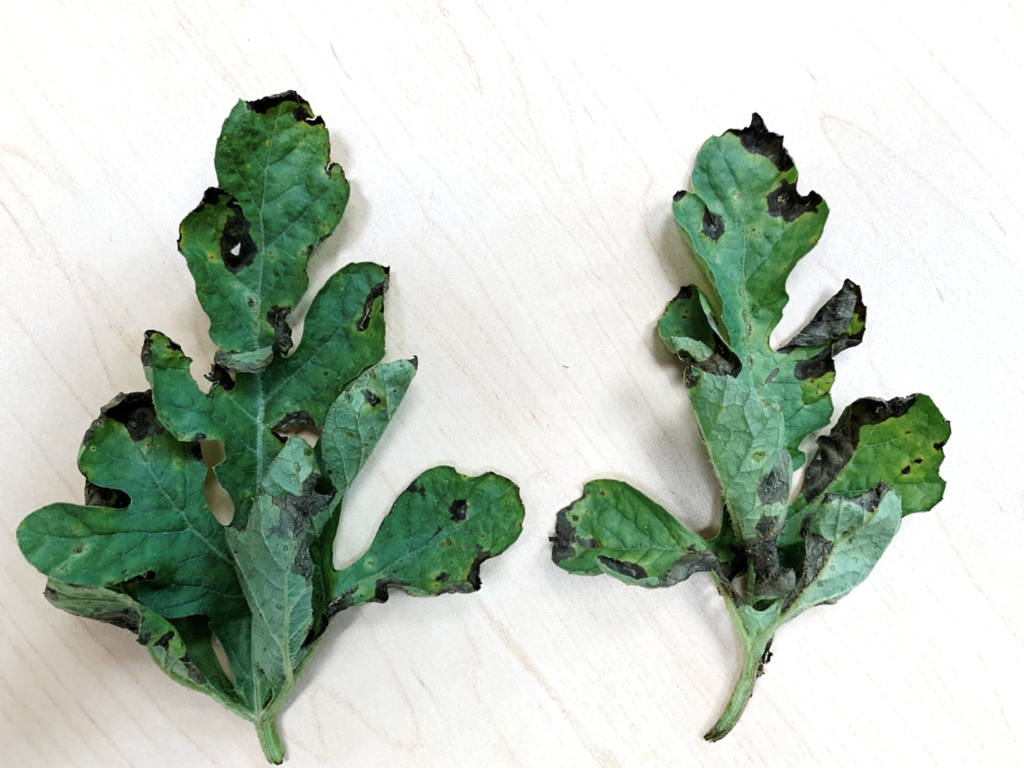
Clemson Extension agents provide crop updates in The South Carolina Grower this week about the status of various specialty crops being produced throughout the state.
Statewide
Plant Pathologist Tony Keinath reports, “With the wet weather the past two weeks, gummy stem blight is spreading rapidly on watermelon. Because of widespread resistance to tebuconazole and the need for systemic fungicides, growers should rotate Miravis Prime with Inspire Super until harvest is finished.”

Coastal Region
Rob Last reports, “With increasing rainfall, disease pressure is building rapidly in crops. Gummy stem blight is very active in cucurbit crops. As we approach the end of the picking season in places, it is still important to maintain fungicide programs up to one week of harvest. Once harvest is over, prompt destruction of the previous crop residue will also be important to help reduce inoculum levels for fall crops. Downy mildew is active in most cucurbits, and we are finding anthracnose in tomatoes, peppers and eggplant. Insect activity is also increasing in crops from aphids, cucumber beetles, armyworms and stink bugs. While a pyrethroid may be the more inexpensive application initially, reducing beneficial insects can be more costly in the long term. Selective products, while more expensive initially, may help preserve beneficial insect populations. The net result in the longer term is an increase in sustainability.”
Zack Snipes reports, “It seems like it rains every afternoon lately. Fields are sloppy wet. Those that aren’t finished up will be by week’s end. For those growers out there that aren’t planting fall crops, it is extremely important to mow your fields, get the plastic out and get the field disked up or planted with a cover crop. Leaving crop residue in fields post-season can really build up populations of pathogens, insects, weeds, weed seeds and nematodes.”
Midlands
Justin Ballew reports, “While the forecast showed a good chance of rain every day last week, we didn’t receive nearly as much as the week before. What we did get was very scattered. The temperatures were a little cooler, but it has been humid. We’re still seeing plenty of disease. Powdery mildew has exploded in some cucurbit crops. Growers are managing it the best they can, but all the moisture and humidity we’ve been having is making it tough. Some green peanuts were dug this week, and folks are still finishing up with spring crops. Lots of field prep for fall crops happening now.”
Sarah Scott reports, “Temperatures have been cooler, and we have still been getting rain in the area. Growers are harvesting varieties like July Prince and Scarlet Prince. Both of these varieties performed well and were not hit as hard with cold damage, so there are a lot of peaches right now. Scale crawlers are out, but the population does not seem to be crazy right now. Disease issues have been hit or miss, but we will monitor this closely with all of the wet weather.









